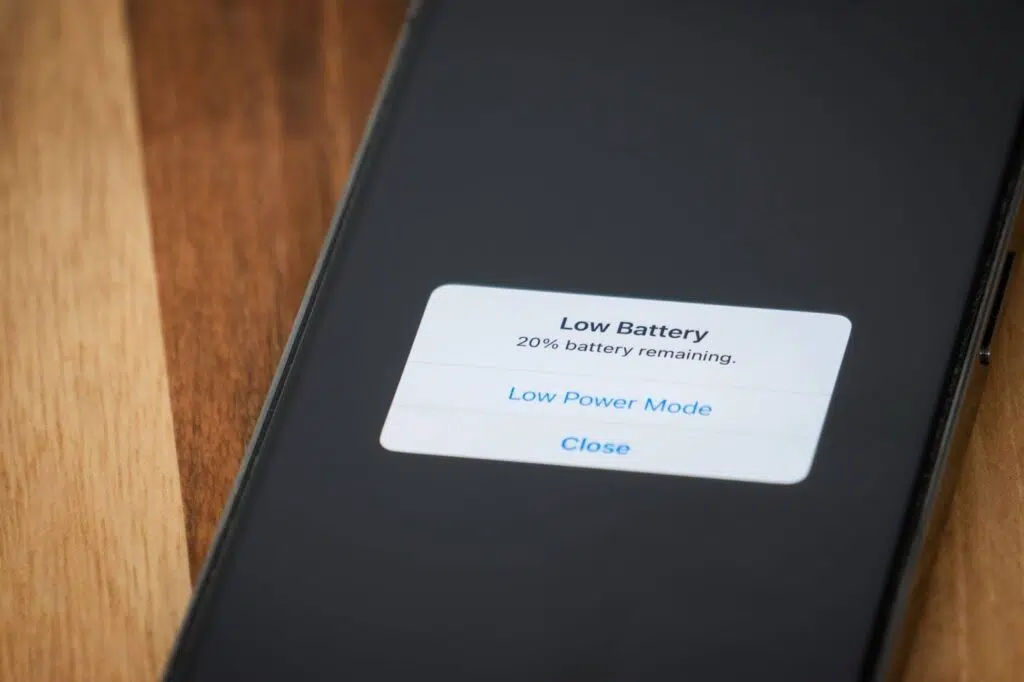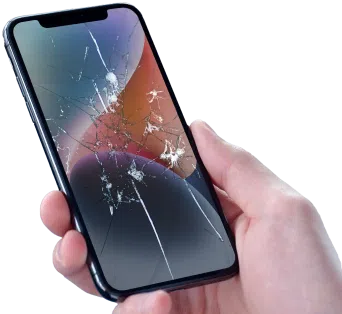
Your phone is your lifeline to the world, so when its battery starts draining faster than usual, it can be more than just an inconvenience. It disrupts your daily routine, makes you anxious about running out of power at critical moments, and often leaves you scrambling for a charger. But why does this happen, and more importantly, how can you fix it? In this blog, we’ll explore the reasons behind a quickly draining phone battery and offer practical solutions to help you maximize your phone’s battery life.
How to check phone battery health percentage
Knowing your phone’s battery health is the first step in diagnosing any battery issues. Here’s how you can check it on both iOS and Android devices.
Checking Battery Health on iOS
- Open Settings: Tap on the Settings app on your home screen.
- Scroll Down to Battery: Scroll down and select the Battery option.
- Battery Health: Tap on Battery Health. Here, you’ll see the maximum capacity of your battery and an indication of its peak performance capability.
Checking Battery Health on Android
- Open Settings: Tap on the Settings app on your home screen.
- Battery: Scroll down and select the Battery option.
- Battery Usage: Tap on Battery Usage. Some Android devices may show the battery health percentage here, or you might need to select More Battery Settings.
- Battery Health: If your Android device supports this feature, you’ll find the battery health percentage under Battery Health.
Use the MK Device Check Up App: For a thorough assessment, download the MK Device Check Up App from the App Store or Google Play. The app will allow you to run a series of diagnostic tests to accurately evaluate your battery health.
Why is my phone battery draining so quickly?
There are numerous reasons why your phone’s battery may be draining quickly. Here are some common culprits:
- Background Apps: Apps running in the background consume significant power.
- Screen Brightness: High screen brightness settings can deplete your battery fast.
- Location Services: Continuous GPS usage drains battery life.
- Push Notifications: Frequent notifications wake your phone from sleep, consuming battery.
- Old Battery: Over time, batteries lose their ability to hold a charge.
- Software Updates: Sometimes, updates can lead to increased battery usage.
- High Processor Usage: Intensive tasks like gaming or video editing use a lot of power.
- Network Issues: Weak signal strength can cause your phone to work harder, draining the battery.
Is your phone not working?
Get a free phone diagnosis in 5 minutes when you visit us in-store.
Learn more
How to keep your phone battery from draining so fast
Implementing some simple practices can significantly extend your phone’s battery life. Here’s how:
- Reduce Screen Brightness: Lower your screen brightness or enable auto-brightness.
- Close Background Apps: Regularly close apps you’re not using.
- Turn Off Location Services: Only enable GPS when necessary.
- Disable Push Notifications: Limit notifications to essential apps.
- Use Wi-Fi: Whenever possible, use Wi-Fi instead of mobile data.
- Enable Power-Saving Mode: Use your phone’s power-saving mode to extend battery life.
- Update Apps: Ensure all your apps are up-to-date to benefit from efficiency improvements.
- Monitor Battery Usage: Regularly check which apps consume the most battery and adjust your usage accordingly.
Preventative Phone Battery Health Practices
Maintaining good battery health requires consistent care and preventive practices. Here are some methods to ensure your battery lasts longer:
Avoid Extreme Temperatures
Extreme temperatures, both hot and cold, can significantly degrade your battery’s performance and lifespan. Exposing your phone to direct sunlight for prolonged periods or leaving it in a hot car can cause the battery to overheat, which accelerates its degradation. Similarly, extremely cold conditions can reduce battery efficiency, causing it to drain faster than usual. Always aim to keep your phone within the manufacturer’s recommended temperature range, typically between 32°F (0°C) and 95°F (35°C).
Charge Wisely
To extend your battery’s lifespan, avoid letting it drop to 0% or charging it to 100% frequently. These extremes can strain the battery and reduce its overall capacity over time. Instead, aim to keep your battery level between 20% and 80%. This range minimizes stress on the battery cells and helps maintain optimal performance. Additionally, try to use slow charging methods when possible, as rapid charging can generate heat, which further degrades the battery.
Use Official Chargers
Using official or certified chargers is crucial to ensure your phone receives the correct voltage and current, reducing the risk of damaging the battery. Third-party chargers, especially cheap, uncertified ones, might not have the necessary safety mechanisms to prevent overcharging or overheating. This can lead to battery swelling, reduced lifespan, or even safety hazards. Always use chargers provided by the phone manufacturer or those certified for your specific device.
Update Software Regularly
Manufacturers frequently release software updates that include battery optimization features and bug fixes that can improve your phone’s battery life. These updates can help manage power consumption more efficiently, fix bugs that cause excessive battery drain, and provide new features that enhance battery performance. Make it a habit to check for and install software updates regularly to keep your phone running smoothly and efficiently.
Enable Auto-Lock and Reduce Screen Timeout
Optimizing your phone’s display settings is key to conserving battery life. Enabling the auto-lock feature ensures that your screen turns off automatically after a period of inactivity, which is crucial since the display is one of the biggest power consumers on your device. Similarly, reducing the screen timeout duration prevents your display from staying on longer than necessary. Set both the auto-lock and screen timeout to the shortest reasonable time (such as 30 seconds or 1 minute) to minimize unnecessary battery drain when you’re not actively using your phone. This is especially helpful if you often forget to manually lock your phone after use.
When should I replace my phone battery?
Even with the best care, all batteries degrade over time. Here are some signs that it might be time to replace your phone battery:
- Rapid Drain: If your battery drains significantly faster than it used to.
- Slow Charging: If your phone takes much longer to charge than it once did.
- Overheating: If your phone gets unusually hot during use or charging.
- Swollen Battery: If the battery physically swells, it’s time for a replacement immediately.
Maximize Your Phone’s Battery Life
Maintaining your phone’s battery health is essential for ensuring it performs at its best and lasts as long as possible. While there are many DIY tips to improve battery life, understanding the root causes and employing preventive measures can make a significant difference. Whether you need professional advice or a reliable battery replacement, taking action now can save you from future headaches. Don’t wait until your battery fails—start maximizing its life today!
Visit Mobile Klinik for expert battery health assessments and professional battery replacement services. Our certified technicians are ready to help you extend your phone’s battery life and ensure it runs efficiently. Drop by one of our locations or book an appointment online for fast, reliable service.
Frequently Asked Questions
How many hours should my phone last before I need to charge it?
A typical smartphone battery should last between 8 to 12 hours with moderate usage. This estimate encompasses a variety of daily activities such as browsing the internet, checking emails, using social media, making calls, and sending texts. However, several factors can influence this duration. For instance, using power-hungry apps like GPS navigation, streaming videos, or playing graphic-intensive games can significantly shorten your battery life. Additionally, background processes, screen brightness, and network signal strength can also impact how long your battery lasts before needing a recharge. Monitoring your usage patterns and adjusting settings can help you achieve the optimal battery life for your specific needs.
How long should my phone battery last?
On average, a smartphone battery lasts about 2 to 3 years before significant degradation occurs. This lifespan can be affected by how you use and charge your phone. Frequent exposure to extreme temperatures, consistent full discharges and charges, and using fast chargers regularly can all contribute to faster battery wear. Proper maintenance practices, such as keeping your battery level between 20% and 80%, avoiding extreme temperatures, and using certified chargers, can help extend your battery’s lifespan. Once a battery’s health drops below 80%, you may start to notice reduced performance and shorter battery life, indicating it might be time to consider a replacement.
What’s a good phone battery health percentage?
A battery health percentage of 80% or higher is generally considered good. When a battery’s health is at 80%, it means that it can still hold 80% of its original capacity. This level of health is typically sufficient to support your phone’s performance without significant issues. However, once the battery health drops below 80%, you may start experiencing problems such as rapid battery drain, slower charging, and unexpected shutdowns. Regularly checking your battery health and adopting good charging practices can help maintain a higher battery health percentage for a longer period, ensuring your phone remains reliable and efficient.
Should I replace my phone battery with a third-party manufacturer?
It’s recommended to use official or certified replacement batteries for your phone. While third-party batteries can be cheaper, they may not meet the same safety and performance standards as those provided by the phone’s manufacturer. Official or certified batteries are designed to work specifically with your device, ensuring compatibility and safety. Using uncertified batteries can lead to issues such as overheating, swelling, and even potential damage to your phone. Additionally, third-party batteries may not provide the same level of performance and longevity, leading to more frequent replacements. For these reasons, it’s best to invest in a battery that is certified by your phone’s manufacturer to ensure the best results.
